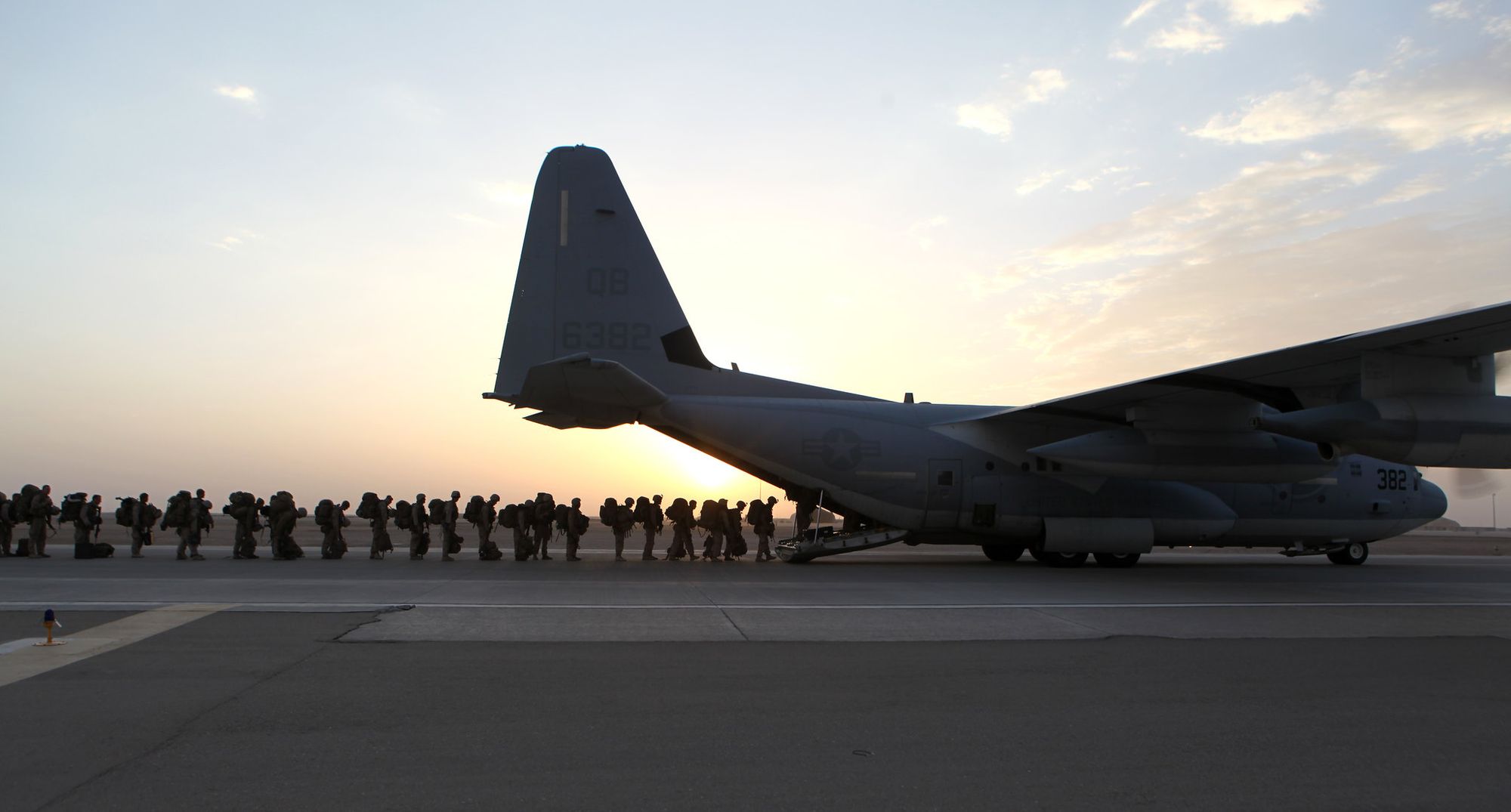Afghanistan: Admitting Defeat
In 2001, 90% of Americans approved of military action in Afghanistan. Today, some are having a hard time admitting they were wrong.

In October of 2001, a Gallup poll found that 90% of Americans approved of the U.S. taking military action in Afghanistan.
I was not one of them.
On September 14, 2001, Senators—among them a certain Sen. Joe Biden—voted 98-0 to approve an alarmingly broad resolution authorizing the President to use military force, and the House of Representatives approved it by a vote of 420-1. Just one courageous representative, Rep. Barbara Lee, voted against it.
However difficult this vote may be, some of us must urge the use of restraint. Our country is in a state of mourning. Some of us must say, let's step back for a moment. Let’s just pause, just for a minute and think through the implications of our actions today, so that this does not spiral out of control.
— Rep. Barbara Lee, 9/14/2001, Statement in Opposition to H.J. Res. 64
Of course, it did spiral out of control, vindicating Barbara Lee and everyone else who could plainly see the danger.
Today, it’s incredibly rich witnessing the recriminations and hand-wringing of the same people who cheered and waved flags at the attack’s inception. Let’s be clear. It was enthusiastically supported by most of America.
We should remember that the United States had been involved militarily since 1976, funding the Taliban and Osama bin Laden in a proxy war. For ten years the CIA recruited jihadists who destabilized the Soviet-supported Afghan government, and then battled the Soviets when, as hoped and predicted, they invaded. Zbigniew Brzezinski, then serving as President Carter’s National Security Advisor, and one of the architects of the secret plan, was later asked if he regretted fomenting that bloody ten-year civil war. He replied:
Regret what? That secret operation was an excellent idea. It had the effect of drawing the Russians into the Afghan trap and you want me to regret it? The day that the Soviets officially crossed the border, I wrote to President Carter, essentially: “We now have the opportunity of giving to the USSR its Vietnam war.” Indeed, for almost 10 years, Moscow had to carry on a war that was unsustainable for the regime, a conflict that bought about the demoralization and finally the breakup of the Soviet empire.
— Zbigniew Brzezinski, 1998, Le Nouvel Observateur
What supreme irony that the United States would eventually find itself wallowing in the same unsustainable, demoralizing quagmire for twenty years, and at an incalculable cost. This is the history that set the stage for the “blowback” that would eventually serve as an excuse to invade.
But in the Fall of 2001, after the attacks of September 11, nobody wanted to hear all that. We had been attacked and something must be done. And that something was to invade Afghanistan, on the grounds that the attacks had been planned there. Never mind that al Qaeda was mostly Saudi nationals. This was no time to reflect on the wisdom of having armed and trained Muslim jihadists in the first place. Nor, of course, to consider the likelihood of the disastrous outcome which, today, should be painfully obvious even to the 90% of Americans who applauded the invasion in the first place.
An emotional nation is easy to manipulate. Newscaster Dan Rather epitomized the public’s blind fervor when he pledged his allegiance to the affable but dim-witted President, George W. Bush.
Wherever he wants me to line up, tell me where.
— Dan Rather, 2001, on The Letterman Show
Basing foreign policy on the painful, emotion-laden reaction to the 9/11 attacks was an obviously terrible idea, as far as I was concerned. If the goal was apprehending bin Laden and eliminating terrorist training bases, that could more easily have been accomplished working with the Taliban, whose early attempts to surrender were repeatedly rebuffed by the Bush administration. More generally, terrorist incidents are better addressed with international diplomacy and policing, than by declaring a “War on Terror” and attacking nations and actors that had tangential involvement in the attacks, if any.
But why let a perfectly good terrorist attack go to waste? As Naomi Klein points out in The Shock Doctrine: The Rise of Disaster Capitalism, these are the much-anticipated moments when capitalists can make a mountain of money. Indeed, this is another way of looking at America’s wars of choice: a mere side effect of the desire to transfer wealth from public coffers to the private shareholders of the military-industrial complex. In this, the wars of Afghanistan and Iraq were resounding successes.
That was my second concern. Once the U.S. war machine was mobilized, it would be impossible to put the genie back in the bottle. The neocons had been militating for an attack on Iraq since well before ascending to power with the Bush administration. It was eminently predictable that Afghanistan would be the prelude to their grander scheme of attacking Iraq, or Syria or Iran; a stepping stone to yet another disaster.
Yes, it’s obvious that the final days of the U.S. defeat in Afghanistan were bungled. President Biden’s handling of the defeat and retreat may be criticized—as can his strong support for the war back in 2001. But this fubar is merely a tragic coda that recapitulates two decades of stupidity, incompetence, avarice and arrogance. It’s a drop in an ocean of misery.
Criticizing Biden for the mismanaged withdrawal is really just a way for some Americans to displace their own complicity in the vast suffering they’ve inflicted—a pathetic refusal to admit their own ignominious defeat.
Photo Credit: Staff Sgt. John Jackson, CC License
